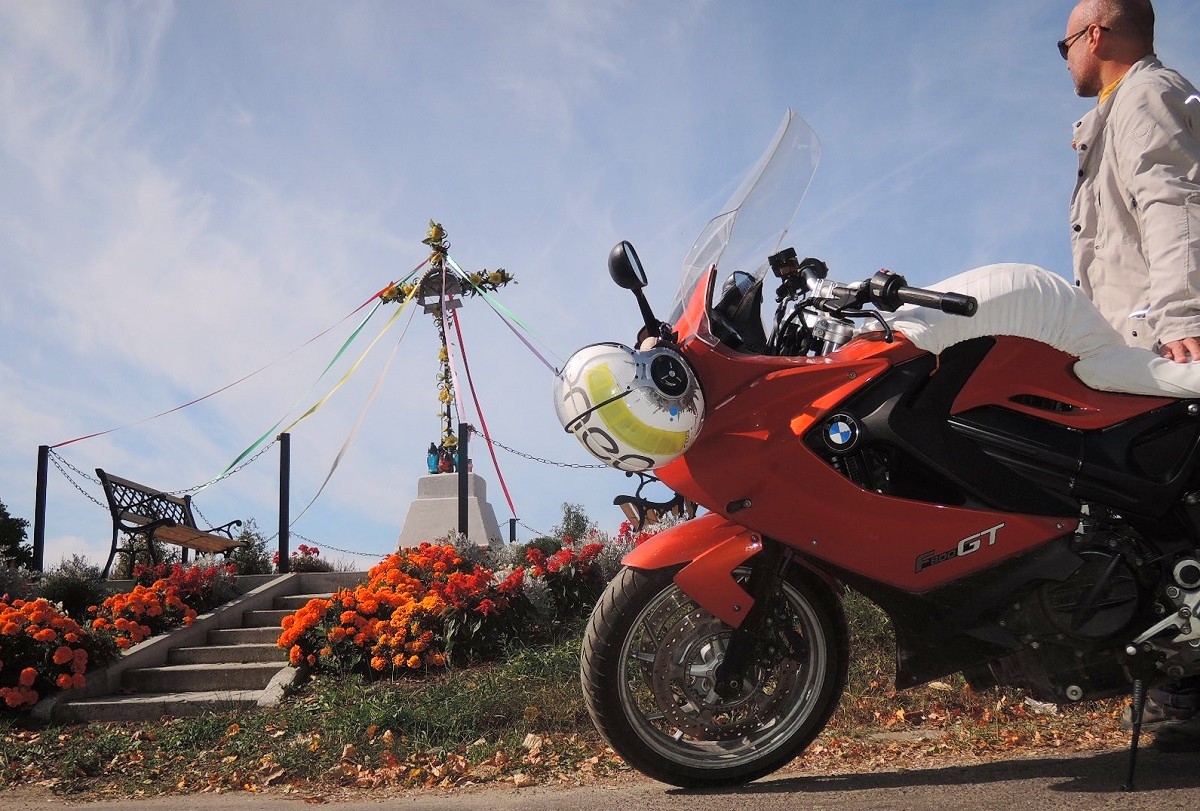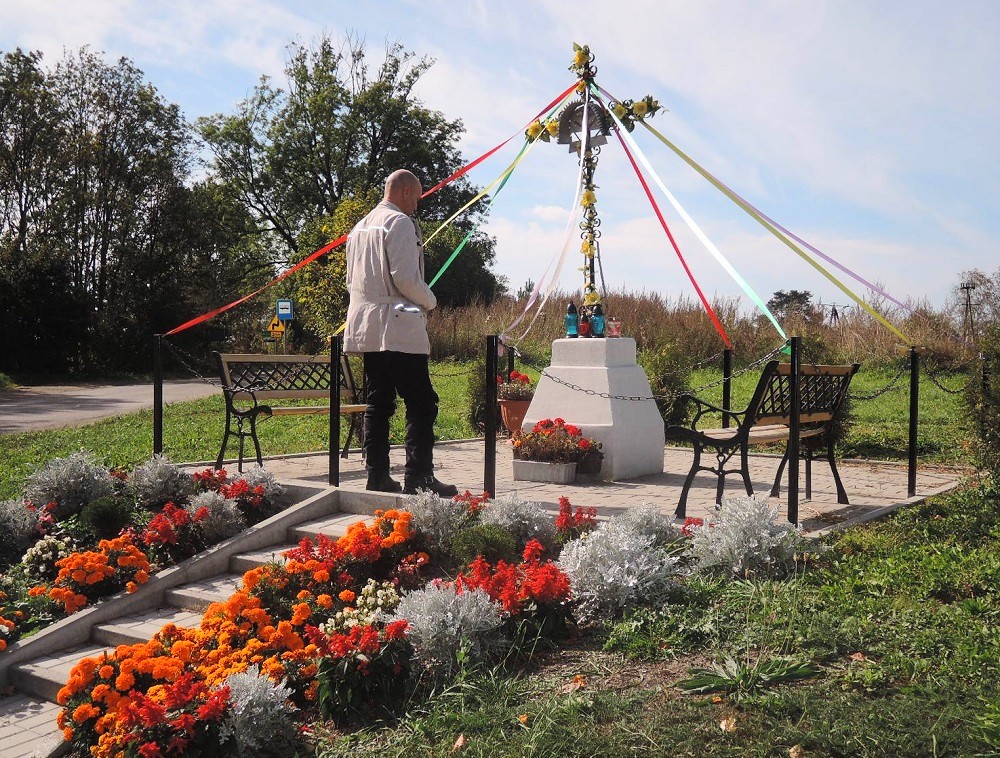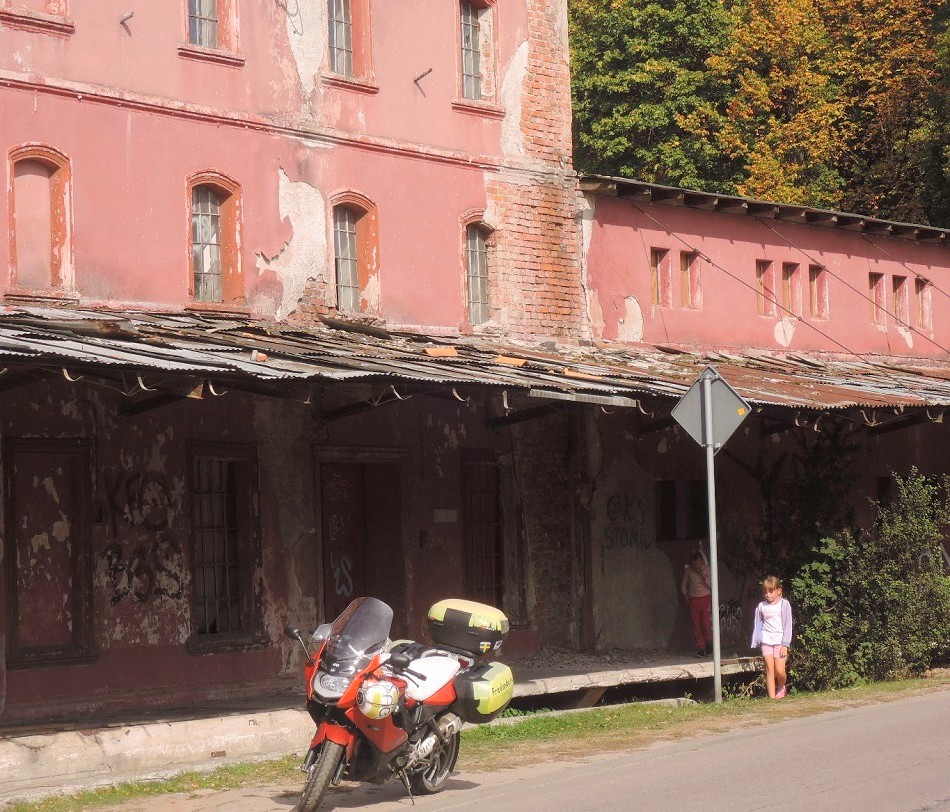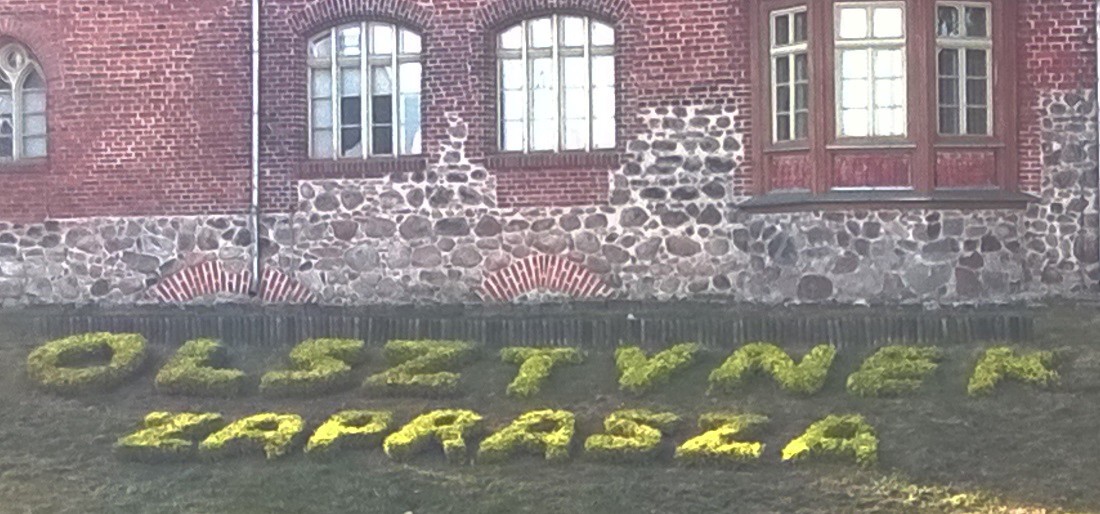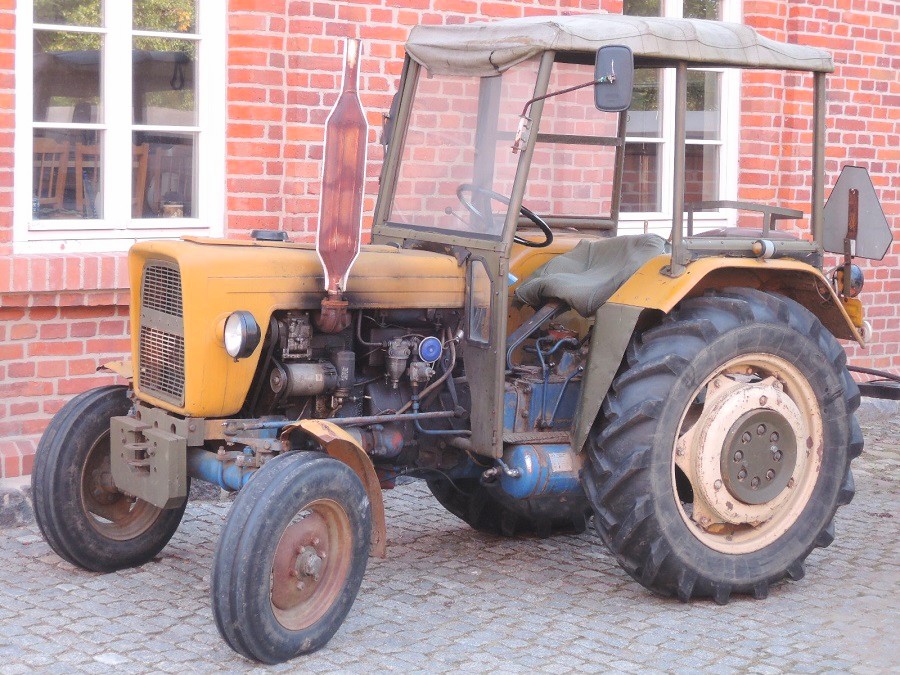Middle of September 2014. It’s about time to pay a little homage to the kapliczki, humble crosses or chapels scattered all over Poland and whose origin no one knows for certain: some say they were shrines dedicated to Dionisos; others, representations of St. Martin’s cape; yet others suggest ancient totems or pagan icons. Almost invariably placed at junctions, these kapliczki are crosses from whose top coloured ribbons stretch out, like spokes, to the ground or the small fence surrounding them. Though they can be found anywhere, most are in the countryside. I reckon the peasants (usually stronger believers than urbanites) pray God, at the foot of a kapliczka, for the safe coming to an end of their crops. These elements, that evidence an ingenous faith and contribute –I suppose– to the spiritual peace of this credulous nation, inspire me with a paternal tenderness.
Yesterday, at the Piecki hotel, the quietness was total and undisturbed during the night; but not so in the morning, because of of the many trucks that, from dawn on, were passing on the nearby road. So, after all, I couldn’t do without my earplugs. I have to say that Poland is the country of trucks: it’s unbelievable the number of them passing by at all times and everywhere, no matter how quiet the road may seem, or how secondary it is, like this one across Piecki for instance.
Today I carry on my traveling west, and I call it a day when arriving to Olsztynek. If I wanted to, I still might get to Torun (my next destination) before dusk, but I’d rather not risk driving with low light, and I prefer not to ride longer than necessary. I am not in a hurry.
A bit off hand, almost one kilometre from the centre of Olsztynek and near the highway, there is a rundown and ugly hotel; a cold building by all means, unappealing, without any character, devoid of ornaments and short of furniture, expensive for the value, wifi and breakfast to be paid as extras; but it’s the only accommodation here. What an odd way of running a business! Very Eastern European. No wonder it’s almost empty. Many other hotels I’ve known cheaper and cozier, nicely furnished and warmly decorated.
To top it all, I’ve been tricked by the dataphone and the receptionist into paying a larger sum, because of the exchange rate. It’s not the first time this happens to me: the tele-payment system lets you chose between the actual bill in local currency or an ‘equivalent’ amount in your card’s; and this is the default. Though the hotel doesn’t profit from this (the 4B network does), more often than not the receptionist won’t care and you’ll be handled a machine with the more expensive option set, and if you’re not very attentive, you’ll insert your PIN before realizing you’ve done it to your own disadvantage: an extra 10% over the price that you’re giving away to the 4B folks. They’re clever.
By the way, I haven’t yet mentioned that re-entering Poland has put an end to the criminal paradise Scandinavia means when it comes to travellers control: no silly passport registering at hotels. Here, when checking in, they’ll ask your ID for making sure you gave your real name. Still this is a lot better than Spain’s police regime, where the hotel staff will scan both sides of every lodged guest’s ID and send that information, every morning, to the several police forces operating in the region. Pathetic. And I wonder: this anti-system and anti-police lefties that want to rule us now… why don’t they say a word about that?
At first sight, Olsztynek is a nice and cozy town, not too bustling not too quiet, with its pretty square, its half a dozen restaurants, a red brick palace-fortress, a few cafés and bars. On the street a see some ladies, very young, pushing their buggies behind a paunch ready for the second child. How early this folks get married! Nothing to do with Spain’s birth patterns. And I don’t know which are worse. Intuition tells me that, once you get into the ‘family dynamics’, you’re a lot safer than others from those contemporary illnesses like depression, anxiety, identity crisis or similar head bash-ups; and even if you get some of that at your forties — well, you’ve already built your family, done your homework (as I like to say), and you’re still quite in time for starting a new life.
But perhaps the most curious note about Olsztynek is the non-existent Tannenberg memorial, erected as a homage to the soldiers who fought that battle in 1914 (exactly one century before my arrival) under the victorious Field Marshall Hindenburg. By then, this was German land, and the monument, of Pharaonic conception and dimensions, was later on used for several propagandistic events by Hitler, who added new elements to it, sumptuous and colossal, and placed there Hindenburg’s sepulchre along with those of twenty unknown soldiers, thus turning the memorial into an emblematic national temple. But during WWII, in the face of the advancing Soviet lines, Hitler ordered the removal of the coffins and, when the German troops retreated, the monument was dynamited to prevent the otherwise certain profanation. When the war ended, the winners decided to gift Poland with this part of Germany (as a ‘compensation’) and the new government decreed the total removal of the memorial remains (which, by the way, took Poland thirty years). Nowadays, of that titanic Tannenberg temple there’s nothing left at all except a small hump in the middle of the 50 Ha field it once occupied, and a lion’s stone sculpture which was replaced in Olsztynek’s central square.
When leaving the hotel in the morning of my departure, I talk a few words with an elderly couple I come across in the garden. They’ve come from Germany because this year is the first centenary of the Tannenberg battle; and, though the memorial no longer exists, for many of their fellow countrymen -they say- this is still a very important and symbolic place.

